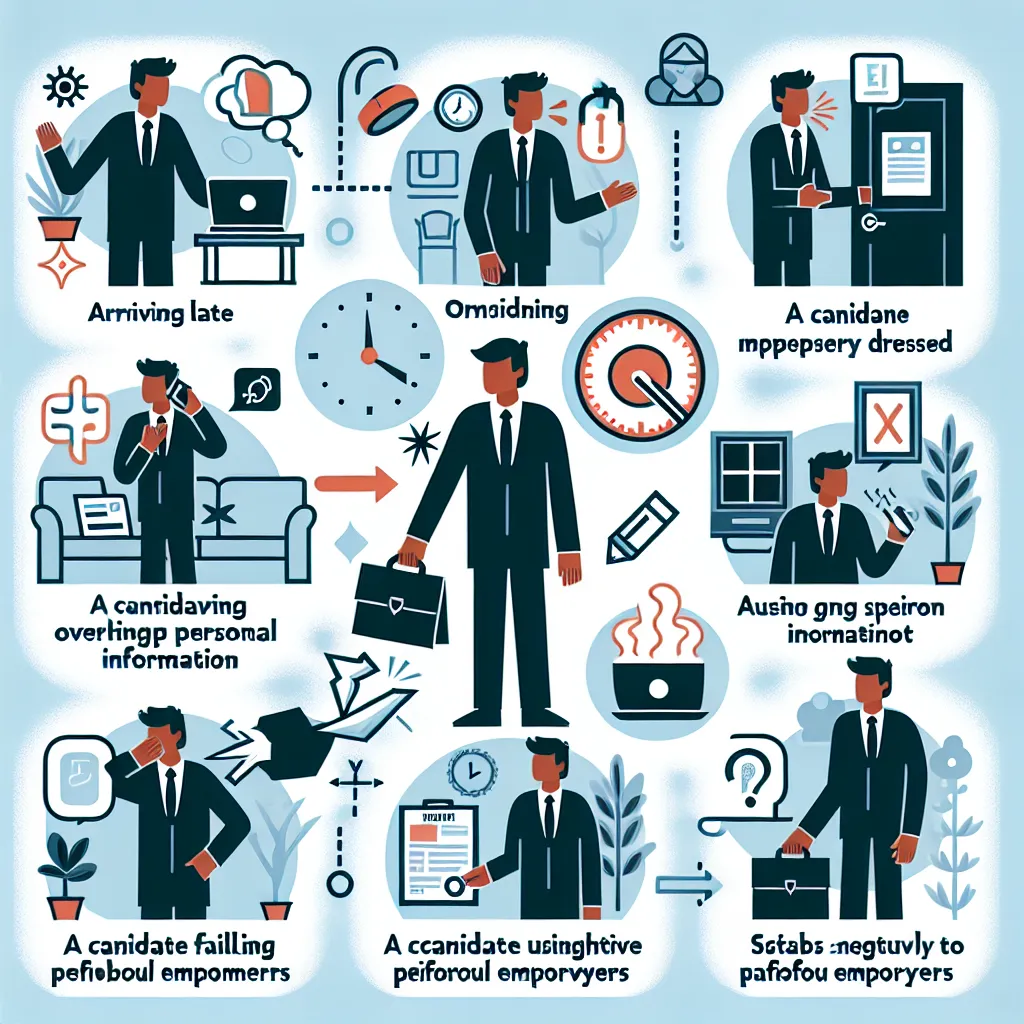Are you preparing for an English job interview? One of the most crucial aspects of any interview is effectively communicating your experience. This guide will help you master the art of discussing your professional background in English, ensuring you make a lasting impression on your potential employer.
Understanding the Importance of Talking About Your Experience
When it comes to job interviews, your ability to articulate your experience clearly and confidently can make or break your chances of landing the position. Employers are not just interested in what you’ve done; they want to know how your past experiences have shaped you and how they relate to the role you’re applying for.
The Interviewer’s Perspective
Interviewers assess candidates based on several factors when they discuss their experience:
- Relevance: How well does your experience align with the job requirements?
- Communication skills: Can you express yourself clearly and professionally in English?
- Self-awareness: Do you understand the significance of your experiences?
- Problem-solving abilities: How have you handled challenges in the past?
- Cultural fit: Can you adapt to the company’s work environment?
 Interviewer Assessment
Interviewer Assessment
Crafting Your Experience Narrative
To effectively talk about your experience in English, follow these steps:
1. Prepare Your Key Points
Before the interview, identify 3-5 key experiences that showcase your skills and achievements. These should be relevant to the job you’re applying for.
Example:
“In my previous role as a project manager, I successfully led a team of 10 to complete a $1 million software development project ahead of schedule and under budget.”
2. Use the STAR Method
When discussing specific experiences, use the STAR method:
- Situation: Set the context
- Task: Explain your responsibility
- Action: Describe what you did
- Result: Share the outcome
Example:
“At my previous company (Situation), I was tasked with improving customer satisfaction scores (Task). I implemented a new feedback system and trained our support team on better communication techniques (Action). As a result, our customer satisfaction scores increased by 30% within six months (Result).”
3. Quantify Your Achievements
Whenever possible, use numbers to quantify your achievements. This adds credibility and impact to your statements.
Example:
“I increased sales by 25% in my region over the course of one year.”
4. Use Appropriate Tenses
When talking about past experiences, use the past simple tense for completed actions and the past continuous for ongoing situations.
Example:
“I worked (past simple) at XYZ Company for three years, where I was developing (past continuous) new marketing strategies.”
5. Incorporate Relevant Industry Terminology
Use industry-specific terms to demonstrate your knowledge and familiarity with the field.
Example:
“In my role as a digital marketer, I focused on improving our SEO rankings and increasing our conversion rates through A/B testing.”
Common Interview Questions About Experience and Sample Answers
Here are some typical questions you might encounter, along with sample answers:
- “Can you tell me about your most relevant work experience?”
Sample answer: “Certainly. In my most recent role as a software developer at Tech Solutions, I led a team of five in developing a new mobile application. This experience is particularly relevant to this position as it involved similar technologies and project management skills that you’re looking for. We completed the project two weeks ahead of schedule, and it resulted in a 15% increase in user engagement for our client.”
- “What was your biggest challenge in your previous job, and how did you overcome it?”
Sample answer: “The biggest challenge I faced was when our company underwent a major restructuring. I was tasked with maintaining team morale and productivity during this uncertain time. To address this, I increased communication with my team, held regular one-on-one meetings to address concerns, and focused on setting clear, achievable goals. As a result, our team’s productivity actually increased by 10% during this period, and we received recognition from upper management for our resilience.”
- “How has your experience prepared you for this role?”
Sample answer: “My experience as a customer service representative has honed my communication and problem-solving skills, which are crucial for this sales position. I’ve learned how to actively listen to customers, identify their needs, and provide tailored solutions. In my previous role, I consistently exceeded my customer satisfaction targets by 15%. This experience has prepared me to build strong relationships with clients and effectively communicate the value of your products.”
Tips for Handling Questions Outside Your Experience
Sometimes, you might be asked about areas where you lack direct experience. Here’s how to handle such situations:
- Be honest: Never lie about your experience.
- Highlight transferable skills: Explain how your existing skills can apply to the new area.
- Show enthusiasm for learning: Express your eagerness to acquire new skills.
- Provide relevant examples: If possible, draw parallels from your past experiences.
Example:
“While I haven’t directly managed a team before, I have extensive experience in collaborative projects where I took on leadership roles. For instance, I coordinated a cross-functional team for our company’s rebranding initiative, which required similar skills such as delegation, communication, and conflict resolution. I’m excited about the opportunity to build on these experiences and grow into a formal management role.”
Common Mistakes When Discussing Experience in English
Avoid these pitfalls when talking about your experience:
- Using informal language: Stick to professional vocabulary and avoid slang.
- Focusing too much on job duties: Emphasize achievements and impact rather than just listing responsibilities.
- Being too modest: While you shouldn’t boast, it’s important to confidently articulate your accomplishments.
- Providing irrelevant information: Stay focused on experiences that relate to the job at hand.
- Using filler words: Minimize the use of “um,” “like,” and “you know” to sound more confident and articulate.
 Common Interview Mistakes
Common Interview Mistakes
Follow-up Questions and Suggested Responses
Here are some follow-up questions you might encounter, along with suggested responses:
- “Can you elaborate on how you developed leadership skills in your last role?”
Suggested response: “Certainly. In my previous position, I volunteered to lead a cross-departmental project to improve our customer onboarding process. This involved coordinating with team members from sales, marketing, and customer support. I organized weekly meetings, delegated tasks based on team members’ strengths, and implemented a system to track our progress. This experience taught me how to motivate a diverse team, make decisions under pressure, and communicate effectively across different departments.”
- “How do you stay updated with industry trends related to your experience?”
Suggested response: “I’m passionate about staying current in my field. I regularly attend industry conferences, such as the annual Tech Summit, where I network with peers and learn about emerging trends. I also subscribe to several industry publications, like TechCrunch and Wired, and participate in online forums and webinars. Additionally, I’m part of a local professional group that meets monthly to discuss industry developments and share best practices.”
- “Can you give an example of a time when your experience helped you solve a complex problem?”
Suggested response: “In my role as a data analyst, we once faced a significant discrepancy in our quarterly sales reports. Drawing from my experience with data validation techniques, I initiated a thorough audit of our data collection process. I discovered that a recent software update had caused some sales data to be incorrectly categorized. By identifying this issue and working with our IT team to resolve it, we were able to correct the reports and implement safeguards to prevent similar issues in the future. This experience reinforced the importance of attention to detail and cross-departmental collaboration in problem-solving.”
- “How has your experience shaped your approach to teamwork?”
Suggested response: “My experience has taught me that effective teamwork is crucial for success in any project. In my previous role, I worked on diverse teams with members from different cultural and professional backgrounds. This taught me the importance of clear communication, active listening, and respecting different perspectives. For instance, when we were developing a new product, I made sure to create an environment where all team members felt comfortable sharing their ideas. This inclusive approach led to innovative solutions and a stronger final product.”
- “What aspect of your experience do you think will be most valuable in this new role?”
Suggested response: “I believe my experience in customer relationship management will be particularly valuable in this role. In my previous position, I developed and implemented strategies that increased customer retention by 20%. I learned how to analyze customer feedback, identify pain points, and create solutions that address specific needs. These skills align perfectly with your company’s focus on customer-centric product development, and I’m excited to apply this experience to help drive customer satisfaction and loyalty in this new role.”
Conclusion
Effectively communicating your experience in English during a job interview is a skill that can be mastered with preparation and practice. Remember to focus on relevant achievements, use the STAR method to structure your responses, and always relate your experience back to the job you’re applying for. By following these guidelines and avoiding common pitfalls, you’ll be well-equipped to showcase your experience confidently and increase your chances of landing your desired position.
We encourage you to practice these techniques and share your experiences in the comments below. For more tips on acing your English job interview, check out our related articles on how to talk about your strengths and how they apply to the role and how to answer questions about leadership in English.




